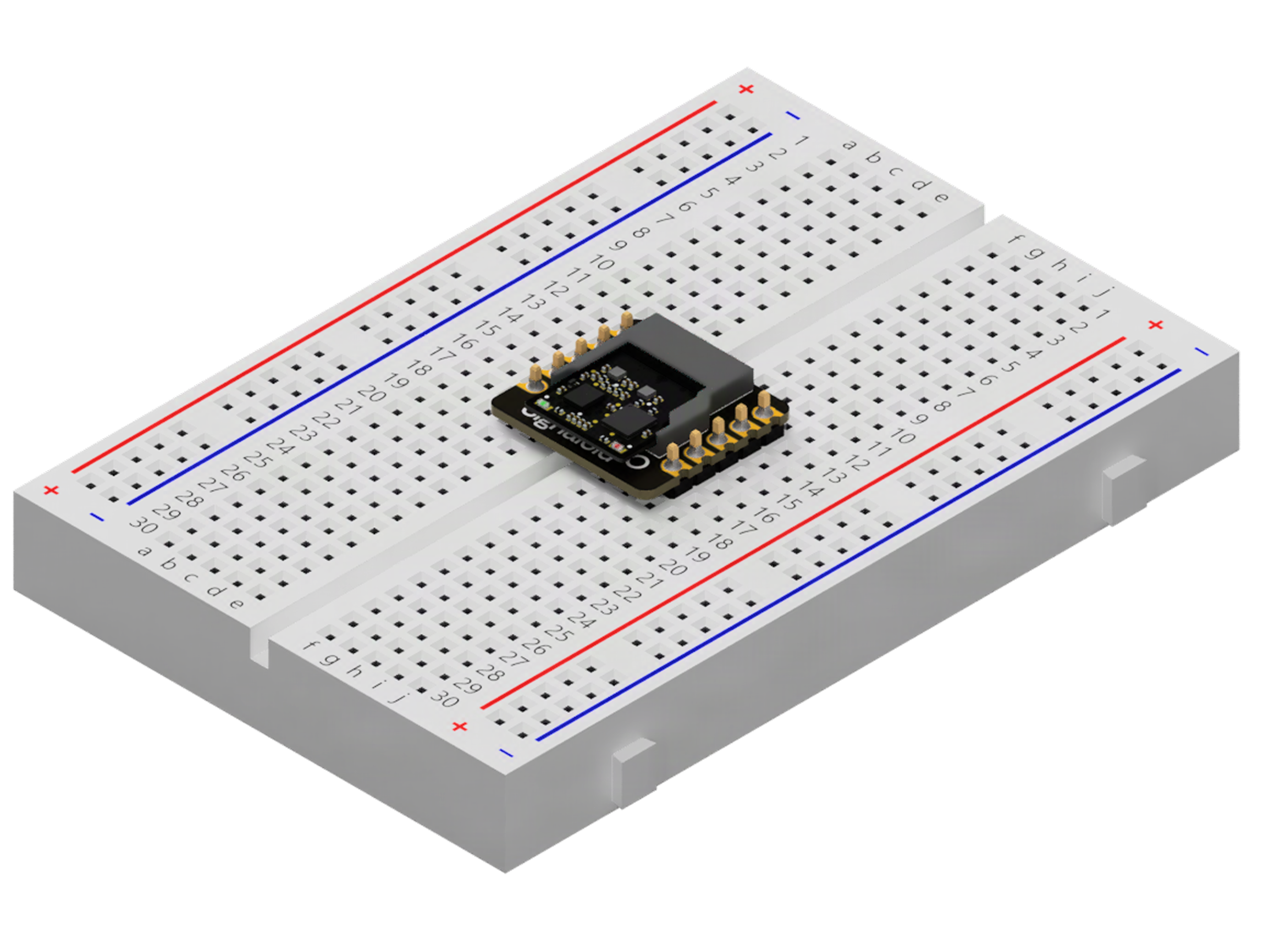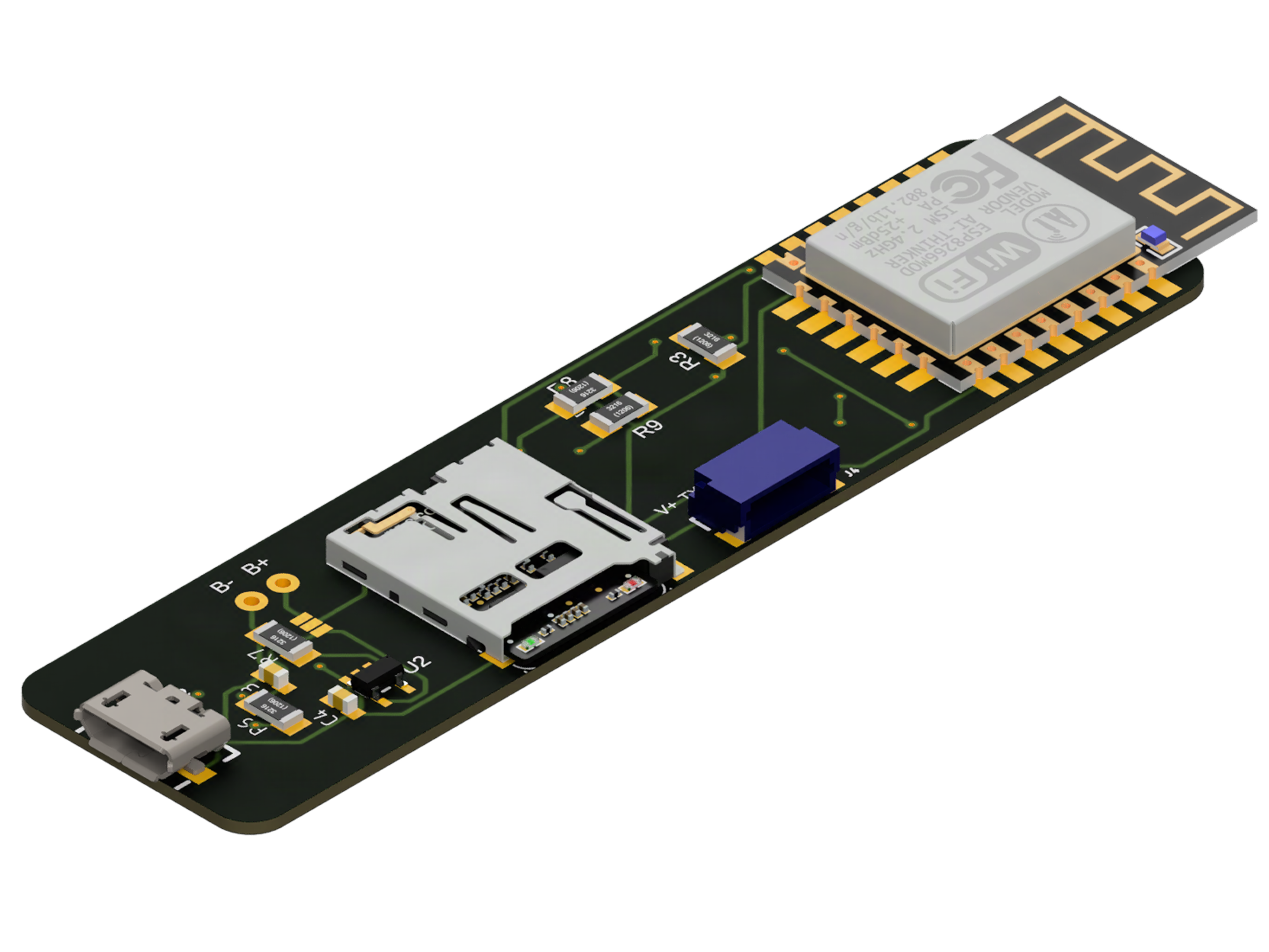Using the Signaloid C0-microSD as a Hot-Pluggable FPGA System on Module (SoM)
When using the Signaloid C0-microSD as a hot-pluggable FPGA SoM, you can plug it into your computer, flash new FPGA bitstreams, and then either plug it into a breadboard using a microSD breakout board, or integrate it into a legacy (or custom) PCB that has an unused microSD slot. Once powered on, the built-in bootloader will check if the device has been connected to an SD host, and if not, will load the latest custom user bitstream. In this configuration, the C0-microSD offers six configurable I/O pins by repurposing the microSD pads, and five additional I/O pins in the form of test pads.
 |  |
|---|---|
| Figure 1: C0-microSD populating a breadboard using a microSD breakout board. | Figure 2: C0-microSD connected to an existing microcontroller platform. |
You can find example designs that use the on-board LEDs along with instructions on how to synthesize and load them to your device in the rtl-examples/ directory of the C0-microSD-Hardware repository.
Using the C0-microSD as a programmable FPGA SoM does not require switching between modes of operation. You only need to set your C0-microSD in Bootloader mode.